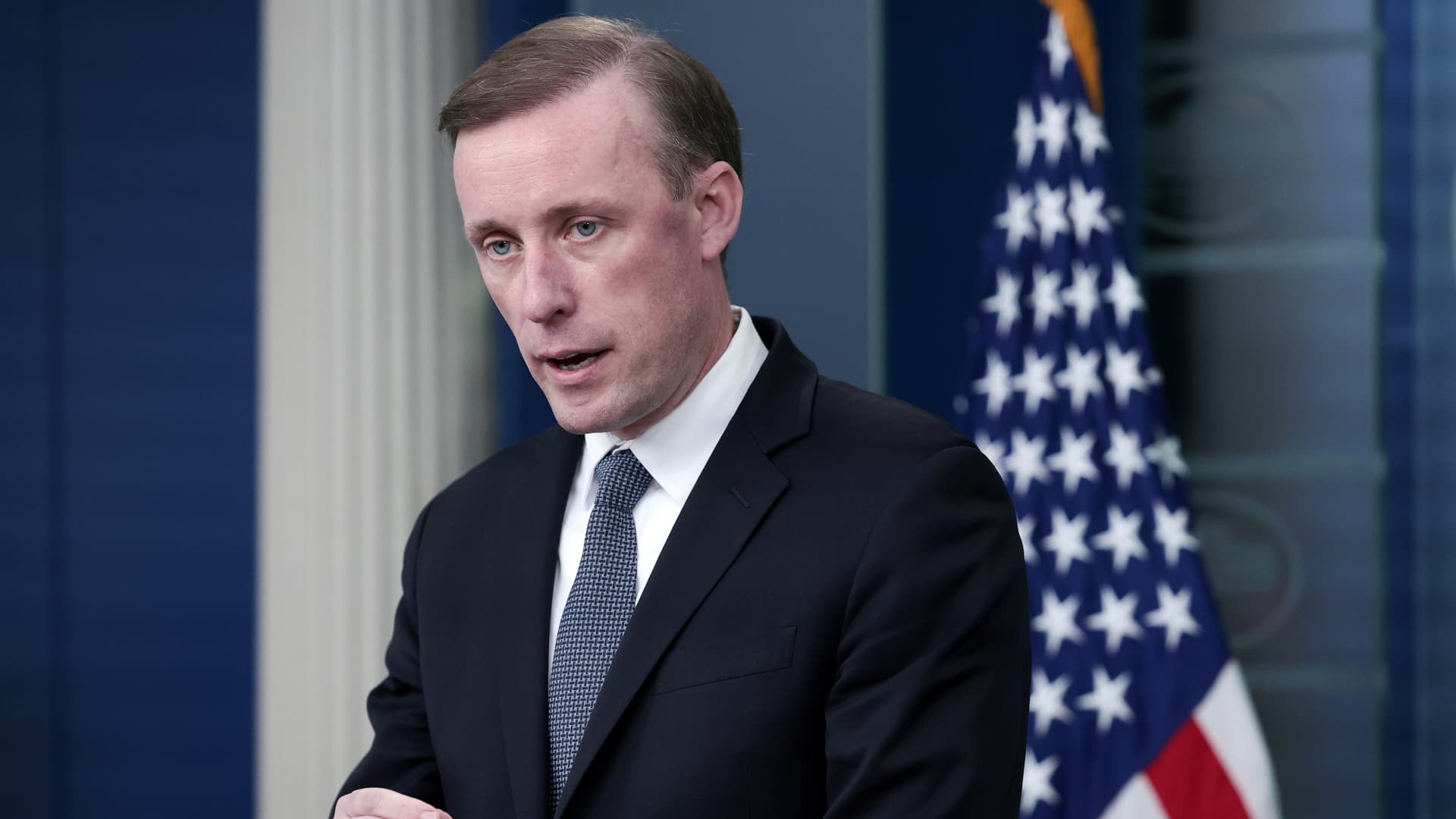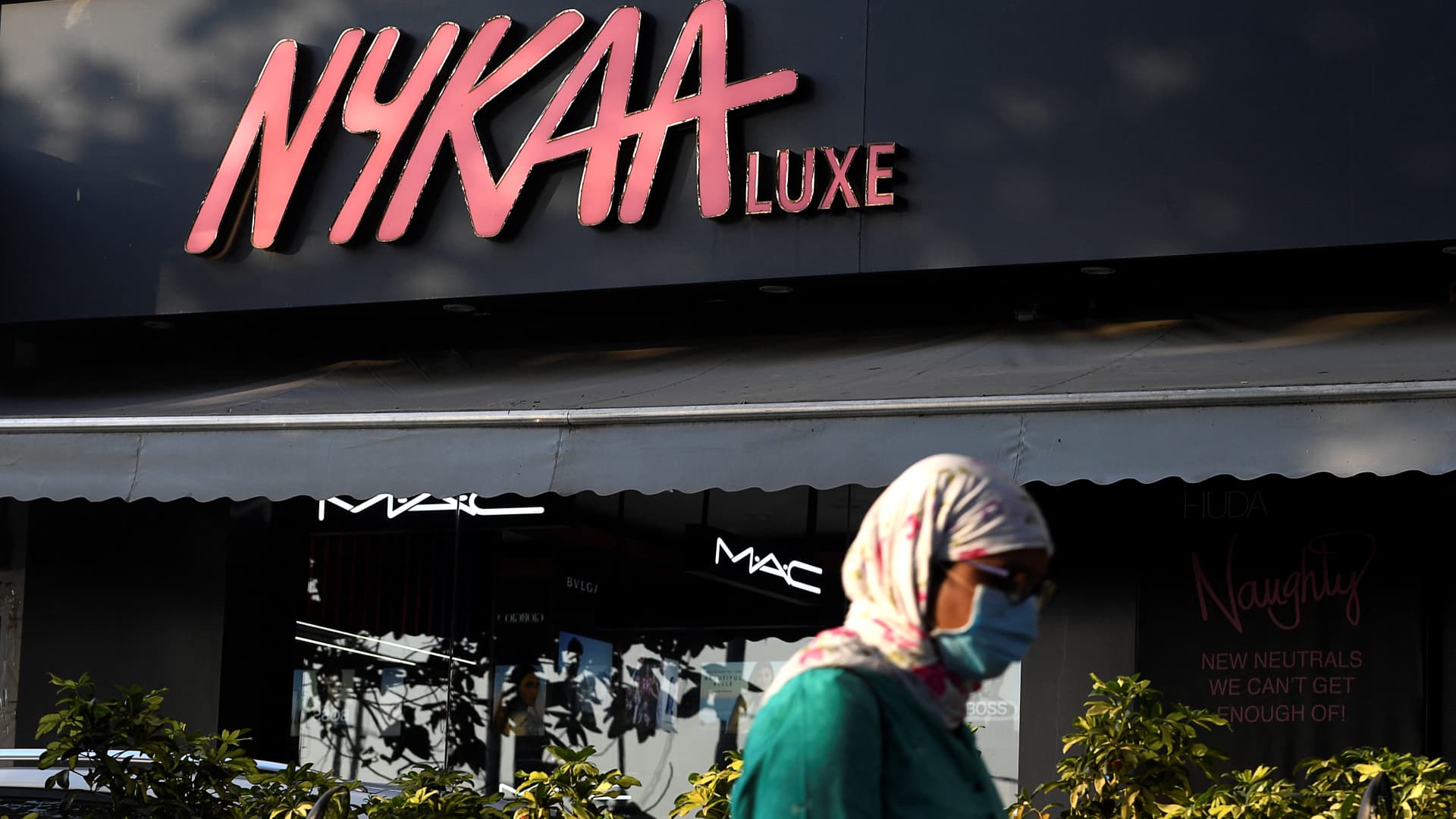U.S. intends to take 'additional strikes' against Iran-backed groups, national security advisor says
Despite heightening tensions in the Middle East, Sullivan insisted that the U.S. is not seeking a wider conflict in the region.

U.S. National Security Advisor Jake Sullivan answers questions during the daily briefing at the White House on November 13, 2023 in Washington, DC.
Win Mcnamee | Getty Images
National security adviser Jake Sullivan on Sunday said that the United States will conduct further military action against Iran-backed groups, heightening tensions in the Middle East despite Sullivan insisting that the U.S. is not seeking a wider conflict in the region.
"The president has been very clear from the beginning, which is that when American forces are attacked, we will respond, and we've responded several times over the course of the past few months," Sullivan said during an interview on NBC News' "Meet the Press," adding that the recent strikes from the U.S. were "not the end" of the president's ongoing military response. "We intend to take additional strikes and additional action to continue to send a clear message that the United States will respond when our forces are attacked or our people are killed."
Whether or not the U.S. will conduct strikes inside Iran remains unclear.
"I'm not going to get into what we've ruled in and ruled out from the point of view of military action," Sullivan said in response to moderator Kristen Welker's question about whether or not the U.S. has ruled out strikes inside Iran.
"What I will say is that the president is determined to respond forcefully to attacks on our people. The president also is not looking for a wider war in the Middle East," he added.
On Friday, the U.S. carried out retaliatory strikes in Iraq and Syria against more than 85 targets linked to Iran's Revolutionary Guard and Iran-backed militants it backs. The strikes were in response to a Jan. 28 drone strike on an American base in northeastern Jordan that killed three U.S. troops and injured dozens of others. The base, known as Tower 22, lies near the demilitarized zone on the border between Jordan and Syria, and is also close to the Iraqi border.
A day after those strikes, the U.S. and Britain led attacks against 36 Houthi targets in Yemen, in a second effort to further destabilize Iran-backed groups. The Houthis, which have close ties to Iran, have been firing at commercial ships and warships in the Red Sea, saying their actions are in solidarity with Palestinians amid the Israel-Hamas war. These are "distinct but related challenges," Sullivan said about the spreading conflict in the region, which he maintained the Biden administration is trying to prevent.
Iran has denied involvement in the Jordan drone strike, emphasizing that militants are acting independently. Iran's foreign ministry on Saturday condemned the overnight U.S. attacks in Iraq and Syria.
When asked how worried he is that Iranian-backed forces could again retaliate against U.S. forces, Sullivan responded: "That's always a risk...if we see more attacks, you'll see more responses."
Sullivan also appeared on ABC's "This Week," CBS' "Face the Nation," and CNN's "State of the Union" on Sunday morning.

 ValVades
ValVades 
































